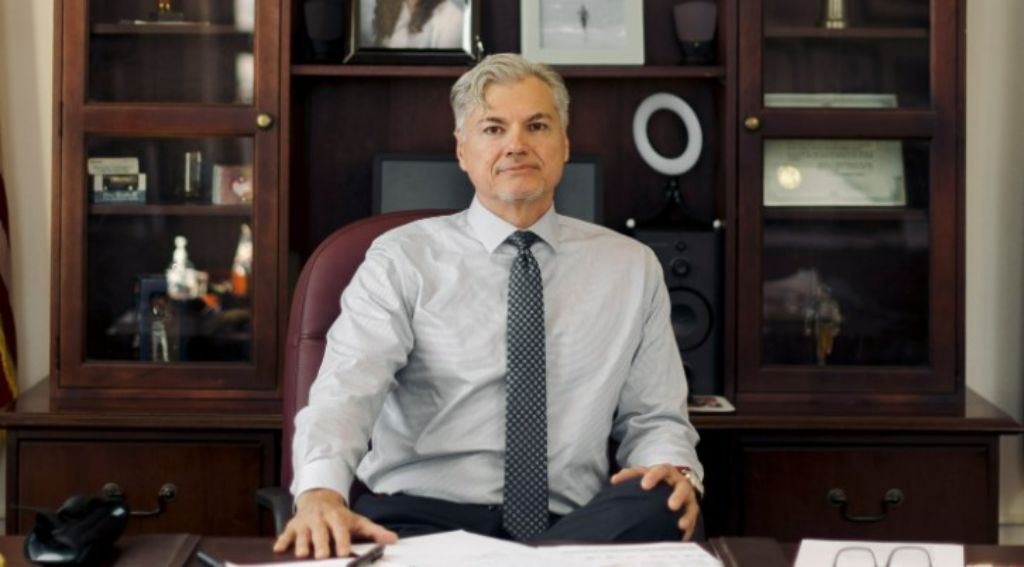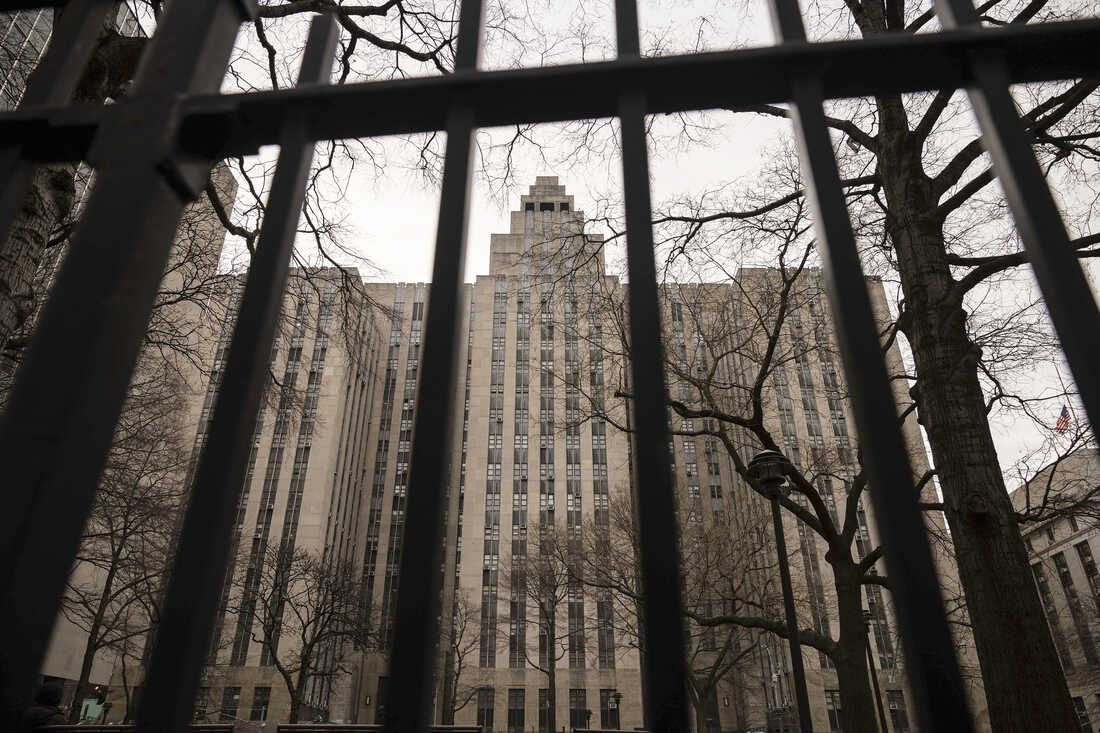Associated Press
Mobile home park residents form co-ops to save their homes
Claire Rush – April 8, 2023



PORTLAND, Ore. (AP) — When Gadiel Galvez learned that the owner of his mobile home park south of Seattle was looking to sell, he and other residents worried their largely Latino community would be bulldozed to make way for another Amazon warehouse.
So, they decided to form a cooperative and buy their park in Lakewood, Washington. With help from a nonprofit that advises communities like theirs and helps them secure loans, they bought it for $5.25 million. Since becoming owners in September, everyone’s worked to make improvements.
“Everybody thought, ‘You know what? … I’m going to make this place the best that I can,’” said Galvez, 22, who is a co-op board member. “Some people painted their homes, some people remodeled their interiors and exteriors, and some are working on their roofs.”
With rents rising at mobile home parks nationwide, advocates tout the cooperative model as a way to preserve one of the last affordable housing options for people with low- or fixed-incomes and to give them a greater voice in managing their parks.
So far these resident-owned communities are proving to be a reliable option. None of the more than 300 in the network of nonprofit ROC USA have defaulted or closed. One decided to sell back to the county housing authority it originally purchased from.
“They have a 100% track record of success, which tells you that it’s working for the residents,” said George McCarthy, president and CEO of the Lincoln Institute of Land Policy, a Cambridge, Massachusetts, think tank. “Resident ownership is an absolute bulwark against the intrusion of institutional capital in the market.”
The push to promote resident ownership comes as parks have become a favorite target of investment banks, hedge funds and other deep-pocketed investors.
Nearly a third of mobile home parks in the U.S. have been bought by such investors since 2015, lured by reliable cash flow and high returns from raising rents at nearly double the general rental market rate, McCarthy said.
“They’re trading on the desperation of people living in the parks,” he said. “There’s no place that they can take their homes if they can’t afford to keep paying the increasing rents.”
Park residents often own their home but rarely the land beneath it. So if a landlord raises rent, residents can be evicted or forced to sell their home. If a park is sold to be redeveloped, mobile homes that can’t be moved are demolished.
“Homelessness is really what residents are facing” if investors aggressively raise rents, said Victoria O’Banion, ROC Northwest’s marketing and acquisitions specialist.
At Rimrock Court in the central Oregon town of Madras, rent increased from $350 to $495 over five years. When the owner notified residents he planned to sell, they feared further increases — or worse, that it would be torn down to make way for apartments. So they decided to buy it.
“We were really worried about being forced out of our homes,” said Shawn King, who lives there with her husband on a fixed income and had experienced homelessness before.
To pay off the purchase loan, residents now pay $520 a month — a stretch, but one that comes with reassurance, King said.
“Just to have that peace of mind, to know that our rent is going to be locked in for awhile and not keep going up, and also knowing that our rent monies … are going back into the property, that is the cool part,” she said.
The required rent increase to go co-op was even steeper in Evergreen Village Cooperative in Mount Bethel, Pennsylvania, — from $460 a month to $750 to pay off the $12 million loan.
Still, more than two-thirds of residents voted in favor, figuring their rent would stabilize in the long run.
“We are not for profit. All the money that we get has to go back into the village and pay the mortgages off,” said Stephen Laclair, board president.
Evergreen Village has earmarked funds for improvement projects for the next decade, and this year plans to enhance the sewer plant and fix electrical issues, he said.
Co-ops can also provide social support to residents. At Liberty Landing Cooperative in Missouri, residents started a food pantry to help neighbors in need.
“If there’s a hardship, we’re willing to work with somebody. … It’s emotional when you find out that somebody’s lost their job, their child support … and they don’t know what to do,” said Kristi Peterman, the board vice president. “Our president likes to say: ‘If it doesn’t work for the poorest of us then it’s not going to work for anybody.'”
Despite the talk of better management and stronger community, most parks aren’t co-ops.
The country’s roughly 43,000 mobile home communities are home to 22 million people, according to the Manufactured Housing Institute, a national trade organization. But only about 1,000 are resident-owned, according to Carolyn Carter, deputy director at the National Consumer Law Center.
Some resistance comes from residents, many of whom are seniors and people with disabilities who may not want the responsibility of managing their park. Others argue rent control or stricter zoning regulations protecting mobile home parks from redevelopment are more effective.
“Zoning is critical. … That is what we ought to be fighting for everywhere,” said Jan Leonard, who lives in a park in Walla Walla, Washington, and worked with other residents to successfully push the city council to amend zoning codes to add mobile home parks as a land-use type.
Other residents considering buying their parks are running up against the same forces that make them popular with investors — a red-hot market and competition from private equity firms and other prospective buyers.
Sarah Marchant, vice president of Community Loan Fund, ROC USA’s New Hampshire affiliate, recalled Tara Estates, a 380-home park in Rochester. The steep $45 million asking price discouraged residents from organizing.
Another challenge is that few states provide funding for residents looking to buy their parks. The lack of grants can make it difficult for residents to finance large loans.
New Hampshire, Vermont, Rhode Island, Massachusetts, Colorado and Oregon are among states with laws that have been effective in helping residents buy their parks, the National Consumer Law Center said.
A new bill in Oregon would allocate $35 million in grants to help residents purchase their parks. Washington passed a bill last month requiring that landlords offer tenants a chance to compete to purchase their park. It also requires two years’ notice if a park will be closed, although that can be reduced if landlords financially compensate residents.
Mobile homes are “an important and affordable housing option for a lot of folks, especially older people aging in place, and we need to make sure it’s preserved,” said state Sen. Noel Frame, the Washington bill’s prime sponsor.
Some real estate groups and park owners argue the bill places an undue burden on landlords.
“If you want tenants to organize and make offers to purchase their communities … they should not wait until there’s a clock ticking,” said Robert Cochran, property manager of Contempo Mobile Home Park in Spokane.
Housing advocates say they hope that $225 million in recently approved federal funding may provide some relief for mobile home park residents. Starting this year, the money will be funneled through grants to states, resident-owned parks, nonprofits, and local and tribal governments to preserve mobile home communities and improve infrastructure.
King cherishes the mobile home that going cooperative at Oregon’s Rimrock Court saved from rent increases and a potential buyout by investors.
“It’s so hard to find affordable housing when you’re low income. To be able to own your own home is so empowering,” she said.
“It’s 600-square-feet. It’s not much, but it’s a castle to me.”
AP writer Michael Casey in Boston contributed.











